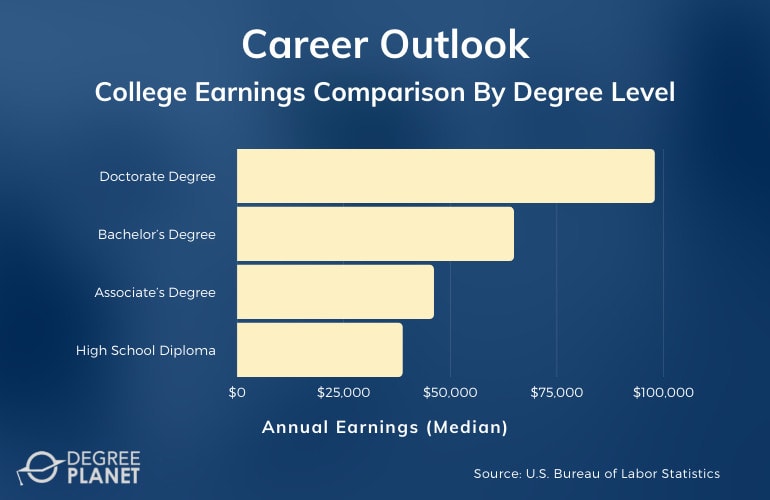When deciding whether going back to college makes sense for you, it all comes down to your goals and aspirations.

With rapid technological and workforce changes afoot, going back to college, even if you’re an older adult, can make lots of sense. Some of today’s best jobs may not have existed when you finished high school, so going back to college may be a natural part of your career planning.
Editorial Listing ShortCode:
The good news is that, whether you’re getting a degree in your current field or making a fast career pivot—you’re more likely than ever to find study options that fit your personal needs. Finally, don’t fall into the trap of thinking that going back to college means starting over from scratch. It’s just not true.
Checklist for Going Back to College

If you’re thinking about going back to school, these steps may help you feel confident you’re making the right decision. You may discover that the process is really easier than you might think!
- Think it through. If you’re thinking about returning to school, there’s sure to be a good reason. Get clarity on where you are in your career and what you want to get out of your degree program.
- Do a mental cost-benefit analysis. Whether it’s switching to a new career or advancing an existing one, you’ll want to target a degree program aligned with your goals. With clear goals and some analysis of the pros and cons of getting more education, you may move ahead with more confidence and less second-guessing.
- Know your assets and gaps. You may be returning to college, but you’re not fresh out of high school. There’s a chance you’ll be able to apply past college credits or professional experience toward any number of degree requirements as a way to save time and money. Likewise, knowing exactly what courses you most need can help you identify the right programs.
- Pace yourself. Be realistic. Don’t think you’re going to work full-time and finish your degree in 6 months. You’ll find intensive study options to get you a degree quickly if you’re truly ready to jump in with both feet. On the other hand, if you’re working or parenting full-time, you’ll also find tremendously flexible online bachelors programs that can make learning convenient and accessible.
- Dream a little. Evidence suggests that the more you learn, the more you’re likely to earn down the road. Once you’ve clarified your learning goals and benefits, it’s good to dream about the new you. Getting an online degree takes some stamina and sacrifices. Savoring the benefits can help you get to the finish line.
- Shop wisely. Whatever degree you pursue, it’s likely you’ll find an abundance of online schools and programs to choose from. You’re allowed to be choosy. You may look for the best accredited schools and the right course concentrations and scheduling options. You may also consider other perks schools have to offer, like programs that connect graduates with industry employers or that help you receive industry certifications.
- Don’t procrastinate. The last thing you want is to get discouraged by red tape. The process may be less stressful if you start early by gathering letters of recommendation, registering for SAT or ACT scores (if needed), drafting a personal essay, and finding out how to request past academic transcripts.
- Money doesn’t need to stop you. Before you start filling out applications, it can be helpful to fill out your Free Application for Federal Student Aid (FAFSA). This way you’ll have a head start when it comes time to request loans or grants. You may want to do some research online or with the schools you’re applying to and make a shortlist of your best scholarship options.
- Apply to your top-choice schools. Most online degree programs offer fast and easy online applications. If you need assistance, you may find that admissions officers are both knowledgeable and eager to help.
By following a plan like this one, you can stop simply thinking about how to go back to college and can be on your way to actually realizing your goals.
Going Back to School Myth vs. Fact

If someone tries to tell you that you’re too old for college, don’t believe it. These myths will cloud your thinking. The truth is, in today’s economy, going back to school is about as American as apple pie!
| Myth | Fact |
| If I go back to college, I will have to start over. | You can often transfer credits and take proficiency exams so that you can skip a number of general education classes. |
| Balancing work and school commitments will be too difficult to manage. | You can find lots of online programs designed for adults and busy professionals that offer great flexibility and convenience. |
| I’m too old to go back to college to finish my degree. | Everyday older adults go back to school and earn new degrees, and you can too. Today’s workforce relies on flexible, fast-paced learning options. |
| If I choose a new major, my previous college credits won’t transfer. | It’s routine for at least some previous college credits to transfer as long as you can request or provide transcripts as needed. |
| I won’t be able to qualify for financial aid. | You can still qualify for student loans and possibly grants if you demonstrate financial need. Many schools offer scholarships or other workforce incentives to offset college expenses. |
As you can see, myths abound, but going back to school certainly doesn’t mean starting from scratch!
College Earnings Comparison By Degree Level

If you’re still wondering if going back to college is the right decision for you, you may consider what your career goals are and if earning a degree can help you attain more in satisfaction and wages.
Editorial Listing ShortCode:
According to the Bureau of Labor Statistics, going back to school can have direct rewards in terms of your future earnings:
| Education Level | Annual Earnings (Median) |
| Doctorate or Professional Degree | $110,200 |
| Bachelor’s Degree | $77,920 |
| Associate’s Degree | $56,590 |
| High School Diploma | $39,070 |
Your own situation will likely depend on how returning to college fits into your larger career goals. But, when the time is right to get a degree that will help qualify you for the jobs you really want, going back to school may pay for itself and more.
Choosing the Right School and Program

You might be amazed at the number of online programs there are to choose from, so it can helpful to think about your priorities.
Here’s a list of some factors you may want to keep in mind when choosing the school that’s right for you:
- Accreditation status. In order for your degree to be widely accepted and respected, you’ll need to choose a fully accredited school.
- Preferred schedule. You may look for programs that offer accelerated programs or flexible part-time study options, depending on your preferences.
- Overall cost. You may consider the cost of tuition as well as additional fees and course materials. Some state universities offer substantial tuition discounts for qualifying state residents.
- Financial aid options. Admission officers are available to provide information about their school’s financial aid offerings.
- Transfer policies. If you want to transfer college credits, you may want to look into the transfer policies at the schools you’re interested in.
- Test score requirements. Some schools require SAT or ACT test scores for admissions while a growing number no longer require them.
Making a list of your most important criteria and priorities may save you both time and stress when you’re narrowing down your school and program options.
Wondering if you can go to college without a high school diploma? Some colleges are very flexible with requirements for a high school diploma and there are some that don’t even require a GED.
Online Degrees for Adults Going Back to School

If packing a duffel bag, flying across the country, and moving into a dorm sounds like your dream, so be it! We realize, though, that vision is hardly realistic for most adults thinking about going back to college.
The good news is that online learning options offer tremendous access and flexibility. Many schools have the following benefits when it comes to online learning:
- Attend class at your own convenience. You may attend classes via the internet at any time, from any location.
- Learn at a flexible pace. You may have the flexibility to progress at a pace that works for you, even if you’re working or juggling other responsibilities.
- Connect with peers and professors. You may connect with professors and other students remotely, enjoying collaborative learning without the usual physical constraints.
- Save money. You may save money on any number of travel and school-related expenses that are typically associated with traditional, on-campus learning experiences.
Today’s online degree programs make it easier than ever for adults going back to college to overcome almost any obstacle. So no matter if you are considering going back to college at 35 for instance, there is always a program available no matter your age.
Transferring College Credits

Which college credits you can transfer and which ones you can’t will vary from school to school. General education credits—those not related to upper-division coursework for your selected major—will usually be easier to transfer.
The school you’ll attend will typically require that you complete a meaningful number of course credits at their institution since the school’s name will be on your degree.
Some college credits that may not transfer include credits that were earned at unaccredited schools and credits for courses in which you did not receive a satisfactory grade. Your GPA at your new school will not be impacted by course credits you transfer from a prior school.
Editorial Listing ShortCode:
Most schools have conventional formulas for converting quarter-system credits earned into semester credits earned or vice versa, so this isn’t anything you’ll likely need to worry about. If you’re seeking to transfer credits earned long ago, you’ll find that expiration policies apply at many schools but also vary from school to school.
In the case of technical courses, expiration policies may be less liberal since the course content may require far more frequent updating in order to be relevant and valid for credit transfers.
If you’re checking out schools and not sure how many college credits you’ll be allowed to transfer, the college admissions office may help you determine what you’ll be able to transfer and how much time and money you might be able to save.
Getting College Credit for Experience and Prior Learning

In addition to transferring credits from prior college coursework, you may find that you can also get credit toward certain required courses based on prior knowledge or work experience. Policies for this kind of credit will vary from school to school.
Some schools may not waive course requirements based on past experience until you’ve already enrolled. That said, they may have a system that allows you to “test out” of certain courses by taking a proficiency exam related to the course content. Some schools will allow you to petition course credits based on prior learning or work experiences.
After submitting the application or petition provided by the school, the school will let you know if you’re able to waive all or some requirements associated with a specific course in your new online degree program.
Use Credit by Exam to Get More College Credits

To make it easier to “test out” of introductory college courses, the College Board (the same folks who administer the well-known SAT exams) has introduced uniform tests that can make it easier for college applicants to demonstrate prior proficiency in core subjects.
These College-Level Examination Program tests (CLEP tests) are accepted by thousands of schools and are popular with adults returning to college. The tests are uniform, but you’ll find that the policies for determining passing scores and applying credits vary from school to school.
You can take a CLEP test by registering with the College Board, paying the required fees, and going through standardized testing procedures. You’ll also need to submit a request each time you want scores sent to the schools where you’re applying.
You may check with a faculty advisor or admissions officer in order to find out if a given school participates in the CLEP program and what their qualifying policies are.
Can I Afford to Go Back to College?

You may be eligible for some form of financial aid or student loan program that can assist with your school’s tuition and additional costs.
If you’ve thought about how your degree fits into a specific career plan, your degree may more than pay for itself over time. Filling out a FAFSA (Free Application for Federal Student Aid) is a helpful way to start the process of qualifying for need-based financial aid in the form of grants, loans, work study programs, or certain scholarships.
You may also be able to compete for any number of merit-based scholarship programs. Based on your degree, area of study, or future job roles, you may also be eligible to apply for workforce-related tuition or loan forgiveness programs.
Can I Leave College and Come Back?

If you are considering going back to college after dropping out, your eligibility will vary from school to school.
Depending on your school’s policies, you may be able to take a leave of absence for one semester or possibly up to one school year. If you drop out indefinitely, you may have to give back financial aid you’ve already received and reapply down the road.
Editorial Listing ShortCode:
If you only need to step away for a short time, check with your faculty advisor or admissions office. They could give you more information about how much flexibility your school allows and how the leave of absence might affect your progress toward graduation and your financial aid benefits.
How Old Is Too Old for College?
If you’re going back to school for intellectual stimulation or enrichment, you’re never too old! If you or someone else thinks you’re too old, it is almost certainly myth rather than reality.
One factor to consider, though, might be future earnings. For example, when thinking about what to go to college for in terms of a cost-benefit analysis, your window of time for potential benefits to be accrued from future earnings is likely to be impacted by your age.
Is It Worth It Going Back to College?

Yes, going back to college is worth it for many students. With bachelor’s degree holders earning an average salary of $77,920 (Bureau of Labor Statistics), a college degree may help you increase your earning potential. In contrast, those with only a high school diploma earn an average of $39,070 per year.
Not only will going back to school help you earn more, but it may also help you qualify for a more satisfying, better-paying job or help you launch a new career altogether. Other perks of going back to school can include confidence building, connecting with school-to-job pipelines, making new friends, and professional networking.
Going Back to School as an Adult

Going back to school as an adult might seem daunting. You may be surprised, though, by how your life and work experiences actually help equip you to succeed in college, even if the transition is a bit intimidating at first.
The best degrees for adults returning to college are probably ones that can directly equip and qualify you either for immediate career advancement opportunities or for career changes.
The good news is there are plenty of flexible and affordable online degree programs offered by accredited universities that you can start exploring right now, regardless of your age!

